#scottish author
Text
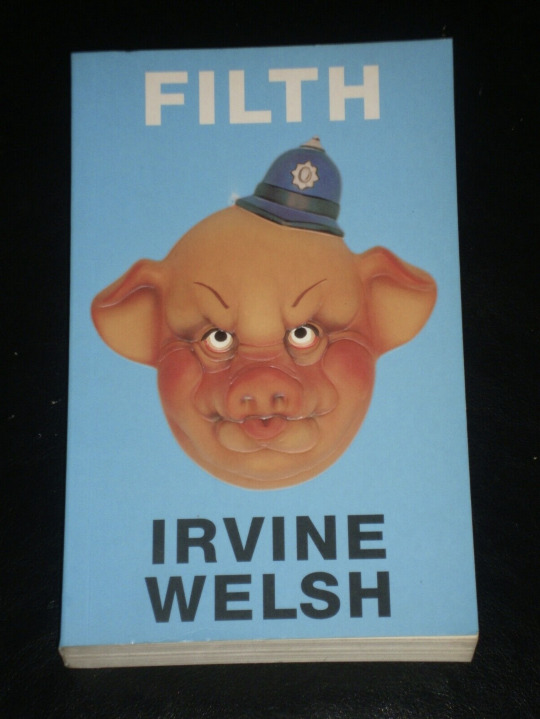

Filth, a novel by Irvine Welsh, 1998. (Jonathan Cape, UK.; W. W. Norton & Company, US)
#novel#crime novel#fiction#contemporary fiction#Scottish fiction#contemporary novel#mystery#Filth#Irvine Welsh#Scottish writer#Scottish author
0 notes
Text

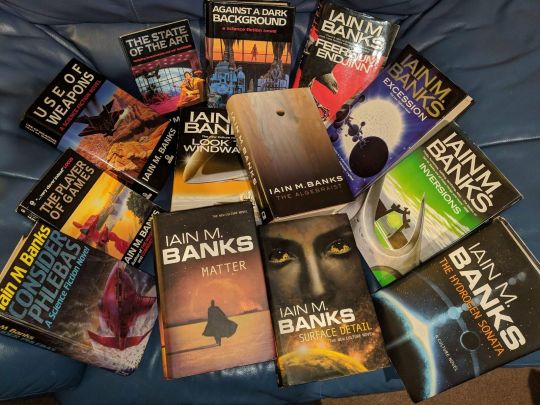

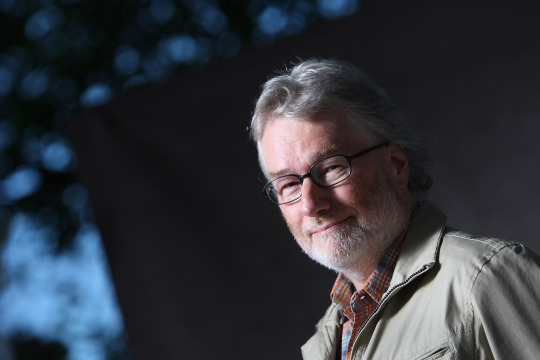


On February 16th 1954 the writer Iain Banks was born in Dunfermline, Fife
Banks was a son of a professional ice skater and an Admiralty officer. He spent his early years in North Queensferry and later moved to Gourock because of his father’s work requirement. He received his early education from Gourock and Greenock High Schools and at the young age of eleven, he decided to pursue a career in writing. He penned his first novel, titled The Hungarian Lift-Jet, in his adolescence. He was then enrolled at the University of Stirling where he studied English, philosophy and psychology. During his freshman year, he wrote his second novel, TTR.
Subsequent to attaining his bachelor degree, Banks worked a succession of jobs that allowed him some free time to write. The assortment of employments supported him financially throughout his twenties. He even managed to travel through Europe, North America and Scandinavia during which he was employed as an analyzer for IBM, a technician and a costing clerk in a London law firm. At the age of thirty he finally had his big break as he published his debut novel, The Wasp Factory, in 1984, henceforth he embraced full-time writing. It is considered to be one of the most inspiring teenage novels. The instant success of the book restored his confidence as a writer and that’s when he took up science fiction writing.
In 1987, he published his first sci-fi novel, Consider Phlebas which is a space opera. The title is inspired by one of the lines in T.S Eliot’s classic poem, The Waste Land. The novel is set in a fictional interstellar anarchist-socialist utopian society, named the Culture. The focus of the book is the ongoing war between Culture and Idiran Empire which the author manifests through the microcosm conflicts. The protagonist, Bora Horza Gobuchul, unlike other stereotypical heroes is portrayed as a morally ambiguous individual, who appeals to the readers. Additionally, the grand scenery and use of variety of literary devices add up to the extremely well reception of the book. Its sequel, The Player of Games, came out the very next year which paved way for other seven volumes in The Culture series.
Besides the Culture series, Banks wrote several stand-alone novels. Some of them were adapted for television, radio and theatre. BBC television adapted his novel, The Crow Road (1992), and BBC Radio 4 broadcasted Espedair Street. The literary influences on his works include Isaac Asimov, Dan Simmons, Arthur C. Clarke, and M. John Harrison. He was featured in a television documentary, The Strange Worlds of Iain Banks South Bank Show, which discussed his literary writings. In 2003, he published a non-fiction book, Raw Spirit, which is a travelogue of Scotland. Banks last novel, titled The Quarry, appeared posthumously. He also penned a collection of poetry but could not publish it in his lifetime. It is expected to be released in 2015. He was awarded multitude of titles and accolades in honour of his contribution to literature. Some of these accolades include British Science Fiction Association Award, Arthur C. Clarke Award, Locus Poll Award, Prometheus Award and Hugo Award.
Iain Banks was diagnosed with terminal cancer of the gallbladder and died at the age of 59 in the summer of 2013.
318 notes
·
View notes
Text

sure man ill post this here too why not. dana hiss charme buck nyailde and desmond kittysene
#fanart#toontown corporate clash#ttcc#doodles#buck wilde#director of land development#dold#dana s charme#director of public affairs#dopa#derrick hand#desmond kerosene#overwhelming authority#dude i hate how many tags i have to put whenever i draw them#dana is a sphinx/siamese mix dold is an orange barn cat & desmond is a scottish fold
112 notes
·
View notes
Note
I don't mean this to come across as mean or rude by any means, I literally love your writing sm, but I was curious if you were aware that "bonnie" isn't typically used as a noun? It's like calling for your partner via "Pretty! Commere Pretty!" which doesn't sound quite right
Oh!!! I wasn't, I'd seen other authors using at as a nickname and thought it was cute. Like calling your partner beautiful as a nickname. As in "Hey there beautiful" or "how are you today beautiful". In the viking au Soap is going to call reader Vænn which also means beautiful or pretty in old Nordic. I don't see it as a noun nickname as much as an adjective nickname, reinforcing that he sees he darling as a bonnie lass/lad without the added gender on the end.
I don't know if that makes sense! Sorry if it doesn't read well for you 😅 it will probably happen again, but I'll change around nicknames with Soap.
#ghoul speaks#i think konigsblog has used bonnie as a nickname a few times#and orla is my authority on scottish nicknames#since i am painfully us american#but thanks for the heads up! learning new things all the time
59 notes
·
View notes
Text
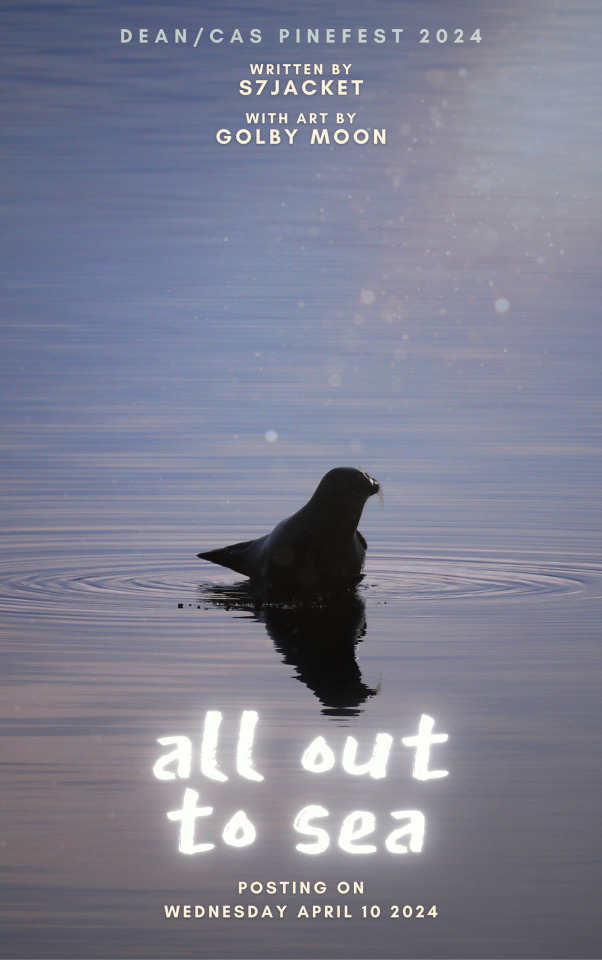
all out to sea
Author: s7jacket | Artist: golby moon
Posting on Wednesday April 10
Growing up on a tiny Scottish island, Dean has heard the legends before—legends of creatures that swim in one form and walk on land another. He’s very sure they’re supposed to be fictional, too, but when he comes across the injured guy sprawled across the rocks clutching a dirty old trenchcoat, he has to wonder, as he takes him home, whether selkies truly are creatures of myth.
Keep reading for a sneak preview!
The hum of the engine pulls him back from his distant thoughts. The boat is sailing his familiar route—straight towards the horizon and left towards the trees on the other side of the bay. His little town wraps around the horseshoe curve of the island shore, with huge, thick-trunked pine trees creeping their way up the hills. Dean’s cottage, small and squat, sits closest to the water in all its unimposing, white-washed glory, and just beyond that, the homes and businesses are dotted haphazardly around, deferring to the natural landscape rather than the other way around. Birds fly overhead and roost in the roof of the pub, with the generational knowledge that dropped chips will be abundant there; parents send their children out on the agreement to be back by tea time, and those children become responsibility of the island, briefly, returned to their wild ways. The air is sharp and wet with sea spray. The wind nips in quick around unprotected ears and noses. Nothing changes but the seasons.
Dean turns off the engine and lets the bob of the tide pull them forwards.
“Whoah, baby,” he soothes, patting the wheel the way one might gentle a skittish horse into submission. Dean, long used to the choppy waves, isn’t sickened by the gentle rocking; sometimes, it feels strange walking on the still, solid set of dry land. When the boat has found a rhythm, he dons the hat he never wears in front of Sam and steps to the side of the boat where the nets sit rolled up and ready.
“Okay, baby, you got this,” he says, and throws the nets overboard. He doesn’t expect a huge haul, nor does he need one—he only feeds the people on the island, and even then, some of them wait for the fancy stuff from the once-a-week supply ferry. They’re the kind of people who want their fish to come pre-battered, anyway, so he’s not losing out on too much business.
While the nets sit in the murky waters below, Dean preps the ice buckets to throw the fish in.
He’s just about to haul the first net in when he sees—no, he doesn’t, and he puts his hands on the net again—but actually, yes, it is, sprawled across the the rocky outcropping on the starboard side of the boat. A guy, dark haired, broad shouldered and—yep, naked as the day he was born. There’s a flush creeping over Dean’s face that he tells himself is from the sun, as he leans out to look at the prone figure, as he cups his hands around his mouth and shouts, “Hey, you over there!” over the sea-soaked wind.
The guy doesn’t stir. If Dean was a betting man, he might wager he was dead (Dean is a betting man, but the only person to gamble with is himself, and he doesn’t trust himself not to cheat). A minute later, he shouts again, to no avail.
There’s nothing for it. He’ll have to go over.
(continue reading on Ao3 on Wednesday April 10)
#destiel#deancas#destiel fic#deancas fic#destiel art#deancas art#pinefest 2024#pinefest previews#2024 Dean/Cas Pinefest#author: s7jacket#artist: golby moon#AU - Scottish Folklore#Fisherman Dean#Selkie Castiel
43 notes
·
View notes
Text
Can we as a fandom collectively move on from writing Scrooge’s accent out in dialogue? Like the “ye” thing? Please. Please. Please. Please Please Please PLEASE—
#context I’m Scottish lol#and this was so common in the dt fandom#that I started doing it#EVEN THO HE HAS MY ACCENT AHDBDHD ??#anyways so yeah it makes his dialogue awkward to read#for ppl who aren’t America/from wherever the author is from#bc for example here a ‘normal’ speaking voice IS scrooges accent#so seeing ‘yee’ all the time is rlly weird if that makes sense??#in general I think accents are better described out of dialogue#not in them#this is my biggest pet peeve in writing ever I think lol#goes for all accents imo not just Scottish ones!#ofc if you disagree that’s okay! write however you like this is all /lh!#but yeah this is my opinion and I’ve not seen anyone else say anything abt it and I wanted to LOL#Ducktales#Ducktales 2017#Scrooge mcduck#textpost#maybe I’ll expand on this later with examples
28 notes
·
View notes
Text
Got a new book, got inspired by @mean-scarlet-deceiver doing this with the G&SWR books.
The Author thinks about L&NW exiles on the Sou' West:
"Curiously enough, it was of the L&NW that I thought in our extermity. The L&NW - hardly a railway publication could you open without accounts of the prowess of their engines - George the Fifths, Prince of Wales, Claughtons. And they had hunderds of them! Surely they could spare a few to run our trains more efficiently. I pictured a Claughton on the Pullman, a George the Fifth on the 5.10p. Glasgow to Ayr, a Prince of Wales on the Stranraer Road. A wilder flight of fancy glimpsed a Claughton tearing down fron Dalnaspidal with a 2-4-0 Jumbo as pilot. I did not know, or had forgotten that such locomotives would require a somewhat severe haircut and shave before they could have gone under some of our Scottish bridges."
- Legends of the Glasgow & South Western Railway in LMS days by David L. Smith
#real true railway stuff#the glasgow and south western#I dare not think how much they would need to trim off on a Claughton!#You think he (the author) was just hoping for anything not from the Caledonian?#Oh David#you sweet little Sou' Westerner#David l. smith#Scottish Railways
13 notes
·
View notes
Photo

Then, of course, the telephone’s such a convenient thing; it just sits there and demands you call someone who doesn’t want to be called.
- Ray Bradbury, The Golden Apples of the Sun
It’s what we Scots call an ‘aye Phone’.
Photo: A remote telephone box in the Scottish Highlands, near Kintar.
#bradbury#ray bradbury#quote#literature#author#telephone#red telephone box#highlands#scotlland#scottish highlands#nature#outdoors#kintar
119 notes
·
View notes
Text
Scotland's glorious monument to her national poet - Sir Walter Scott

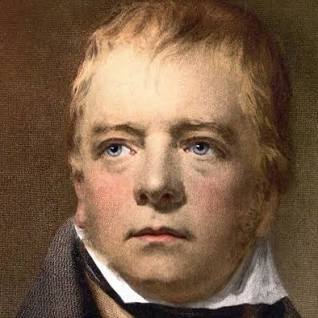
The imposing Scott Monument on Princes Street in Edinburgh
#Sir Walter Scott#Scott Monument#Princes Street#Edinburgh#national poet#Gothic architecture#Scottish authors#1771-1832
16 notes
·
View notes
Text
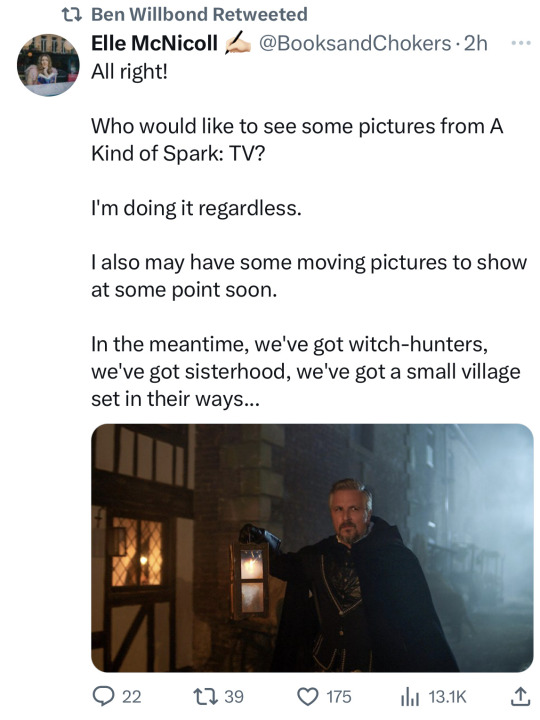
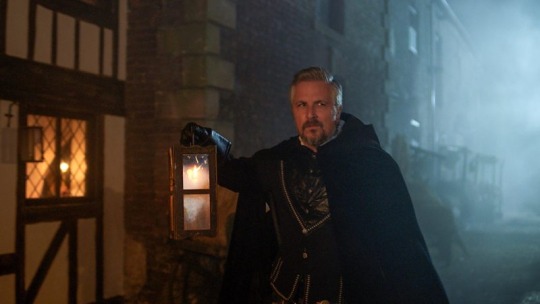
AHHHHHH!!!!!!

#wake up! new ben pic just dropped!!!!#a kind of spark#so hyped for a Scottish witch-hunting Ben!#this show looks so good#I loved the book#and if the author is this hyped so am I!!#ben willbond#six idiots#the six idiots#them there
50 notes
·
View notes
Text
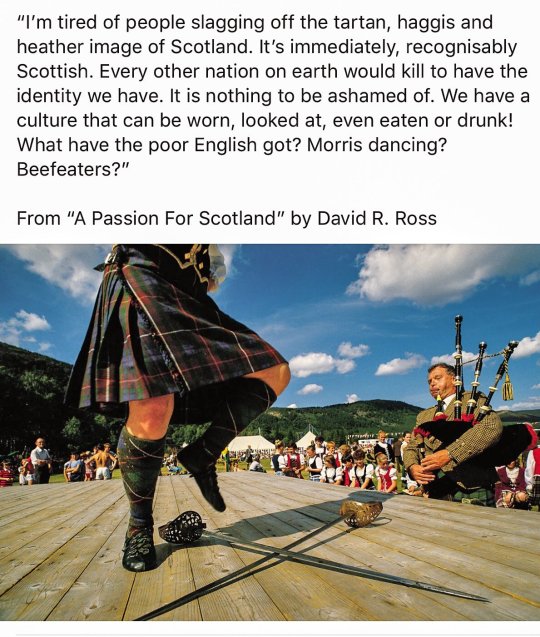
Aye.
184 notes
·
View notes
Photo

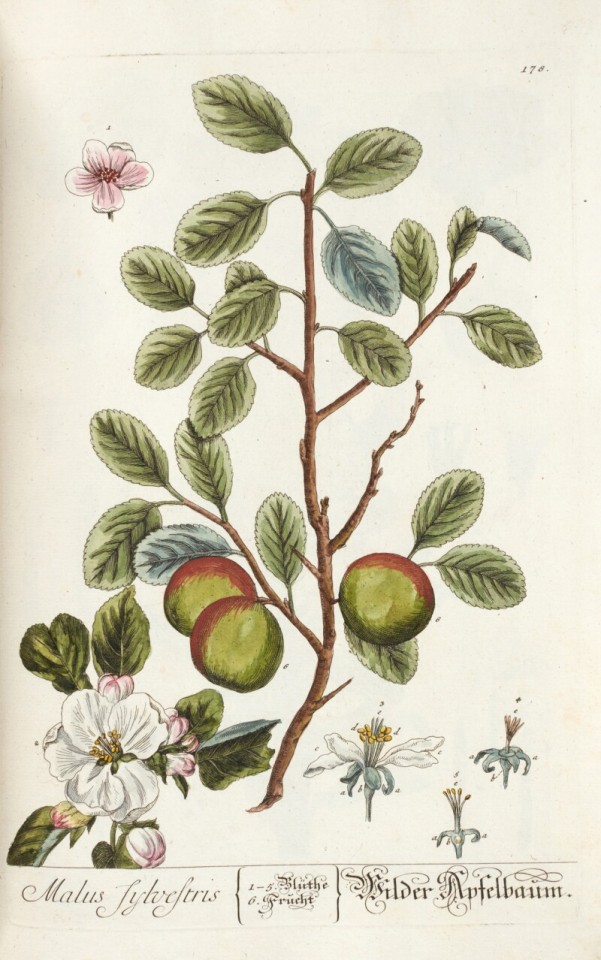
Elizabeth Blackwell
Herbarium Blackwellianum. Nuremberg: Joseph Fleischmann, 1750-1773
Elizabeth Blackwell undertook her task to raise money to free her husband, Alexander, from debtor's prison. With the support of Isaac Rand, Blackwell drew, engraved, and coloured the illustrations herself, using specimens from the Chelsea Physic Garden. The work, which was originally issued in weekly parts between 1737 and 1739 in London, was a great success, and afforded Alexander his freedom. However, Alexander left his family for Sweden in 1742, where he was appointed court physician to the Swedish king (despite his complete lack of formal medical training). The young "doctor" was hanged for treason in 1748 for his involvement in a political conspiracy over the royal line of succession. By the time of the publication of the present work Elizabeth, a widow, was apparently denied any profits from the enterprise.
#Elizabeth Blackwell#Herbarium Blackwellianum. Nuremberg 1750-1773#scottish artist#Scottish botanical illustrator and author#art#artist#art work#art world#art news#nature#plants
21 notes
·
View notes
Text

Okay putting this on my non-anon account because I'm THRILLED and also I guess I should share stuff I've got coming out and not just reblog grad school memes:
I HAVE A BOOK COMING OUT!
Andrion is the tale of Kallis "Andrion" of Athens, who fights against her father and the other orators for women's rights in Athens. She's ace and poly; the story is unashamedly queer, and so is the press.
It's about as close to historically accurate as you can get in a story with giant robots. I'm so fucking excited for this.
Anyway--Knight Errant's doing a Kickstarter for the 2023 catalogue, which I'll link in the next reblog, and the other two books this year also look amazing. We're all trans and queer. It's a micropress, but it's established with some great authors behind it. We've got almost 4.5k quid raised so far, including some funding from Creative Scotland--but we need 7k for full funding.
So if you want a copy, now's the time to order. ♥
Relevant links below!
#andrion novella#knight errant press#where to find my work#kickstarter#edinburgh#edinburgh press#scotland#scottish press#queer sff#sff#author tumblr#queer writers#queer fiction#trans authors#trans author#classics tumblr#classics author#ace rep
16 notes
·
View notes
Text
Just because I learned all of this when I read this book in Secondary School and want to do something during the downtime, I will be just going over the life of Robert Louis Stevenson. Will do this in various parts over the course of the story so that I don’t write one massive fuck off page.
He was born in 1850 in Edinburgh, Scotland, to a family of Lighthouse Engineers. His Father, Grandfather, and Uncles all being engaged in the engineering and design of Lighthouses. From a very young age it was clear Robert had inherited a weak chest like his Mother and Father, frequently having troubles with Coughs and Fevers. These issues would only be exacerbated by both damper climates and recurring bouts of Illness (while at the time it was viewed as Tuberculosis, some modern people think he may have had a different illness).
Because of his illness Robert had to take long periods away from schools (being taught by private tutors) and even when he did go to them he frequently had troubles due to being eccentric and strange looking. Despite being a late reader (learning how to read around 7 or 8) he would still dictate stories to his mother and nurse. While his father did hope for him to join the family trade he was still happy with his son having the hobby of writing stories, as he had done the same as a young boy before his father had forced him to stop (even paying for Robert’s first publication at the age of 16 “The Pentland Rising: A Page of History, 1666“).
Stevenson eventually joined the University of Edinburgh, studying an Engineering degree. However from the very start he brought no enthusiasm to the education, putting much more of his energy into trying to avoid classes and making friends through The Speculative Society, a society dedicated to public speaking and writing. Despite this his father still took him every holiday on a large trip to see the families Engineering Works. Stevenson still enjoyed the trips, but less for the engineering and more for the potential inspiration for his writing. By the time Robert finally told his father he planned to make his living through writing in 1871 (when Robert was 21) his father was described by his mother as “wonderfully resigned“ to this fact.
His parents convinced him to read law at Edinburgh University and be called to the Scottish Bar for some Job Security in case his writing went poorly.
In his 1887 poetry collection “Underwoods”, Stevenson reflects on his choice of profession:
“Say not of me that weakly I declined
The labours of my sires, and fled the sea,
The towers we founded and the lamps we lit,
To play at home with paper like a child.
But rather say: In the afternoon of time
A strenuous family dusted from its hands
The sand of granite, and beholding far
Along the sounding coast its pyramids
And tall memorials catch the dying sun,
Smiled well content, and to this childish task
Around the fire addressed its evening hours.“
#jekyll and hyde weekly#I know you can get most of this information from Wikipedia#But I feel I can at least describe it in a less Dry way#and even if it does just make you look up the wikipedia GOOD#READ MORE ABOUT ONE OF THE MOST WELL KNOWN SCOTTISH AUTHORS
32 notes
·
View notes
Text
My Favourite Pieces of Writing
youtube
The Prelude: Stealing the Boat - William Wordsworth
I was first introduced to this through my time in school. This Poem is from Wordsworth's book, The Recluse where he muses about life.
This poem makes me think of times where I have been out with people and have seen the lights on the promenade go out at night, leaving the street in near darkness, if it weren't for the street lamp. It really illuminates and reminds me that although the human race is terrible and horrific, there is natural beauty in the world.
But it also reminds me of how small human beings really are. I used to lie in bed as a child and think about how small I am in the grand-scheme of things. How I am just a momentary consciousness in the universe. Most of the time, I'd scare myself thinking about it and roll over, finding something else to distract myself with.
It's a good example of an existential crisis, as at the end of the poem, the man who stole the boat, can never see the world with the amazing awe and beauty he once had for it.

2. The Spider's Thread - Ryuunosuke Akutagawa
The Spider's Thread details a story of how the Buddha is strolling through paradise and gazes into a pond where he sees Hell. There is a criminal in a pool of blood lying at the bottom of the pond. The Buddha sees that this man did one good act in his life, and moved by it, lowers a spiders thread to save the man from Hell.
This was really my first proper introduction into Akutagawa's writing. I'd only heard about him through Bungo Stray Dogs and knew only of Rashomon. The anime/manga was what really sparked my love in classics.
What struck me about this story, was how cruel and vividly I could picture the story playing out as I read the words on the page. I'd heard that in Japanese Buddhism, they believed that women who did bad things in life would be sent down to Hell and forced into a pool of blood and I can't help but be reminded of that in this story.
Akutagawa has also inspired me into writing short stories more recently.

3. Lady Macbeth's Soliloquy - Macbeth
I have spent a lot of time in performing arts. Growing up, I was always excited when my school decided to put on a play - a break from the boring and mundane sitting at a desk and being forced to memorise useless maths equations I would never use.
I've always thought that Shakespearian English is really pretty and I love this whole speech she gives herself. I can't stop thinking about the lines: 'And fill me from the crown to the toe top-full of direst cruelty' and 'And take my milk for gall, you murdering ministers,' This whole monologue is so powerful.
#Youtube#writing#macbeth#lady macbeth#akutagawa ryuunosuke#the spider's thread#shakespeare#on writing#plays#shakespearean solioquy#william shakespeare#classics#poetry#japanese novels#old english works#stealing the boat#authors#the scottish play#my favorite#japanese classics#short stories
7 notes
·
View notes
Text

a gem from today's Nature briefing (02/02/24) that had me in tears
#a MACAQUE in the SCOTTISH HIGHLANDS#if there are any children's book authors around i have an idea for a book#science
2 notes
·
View notes